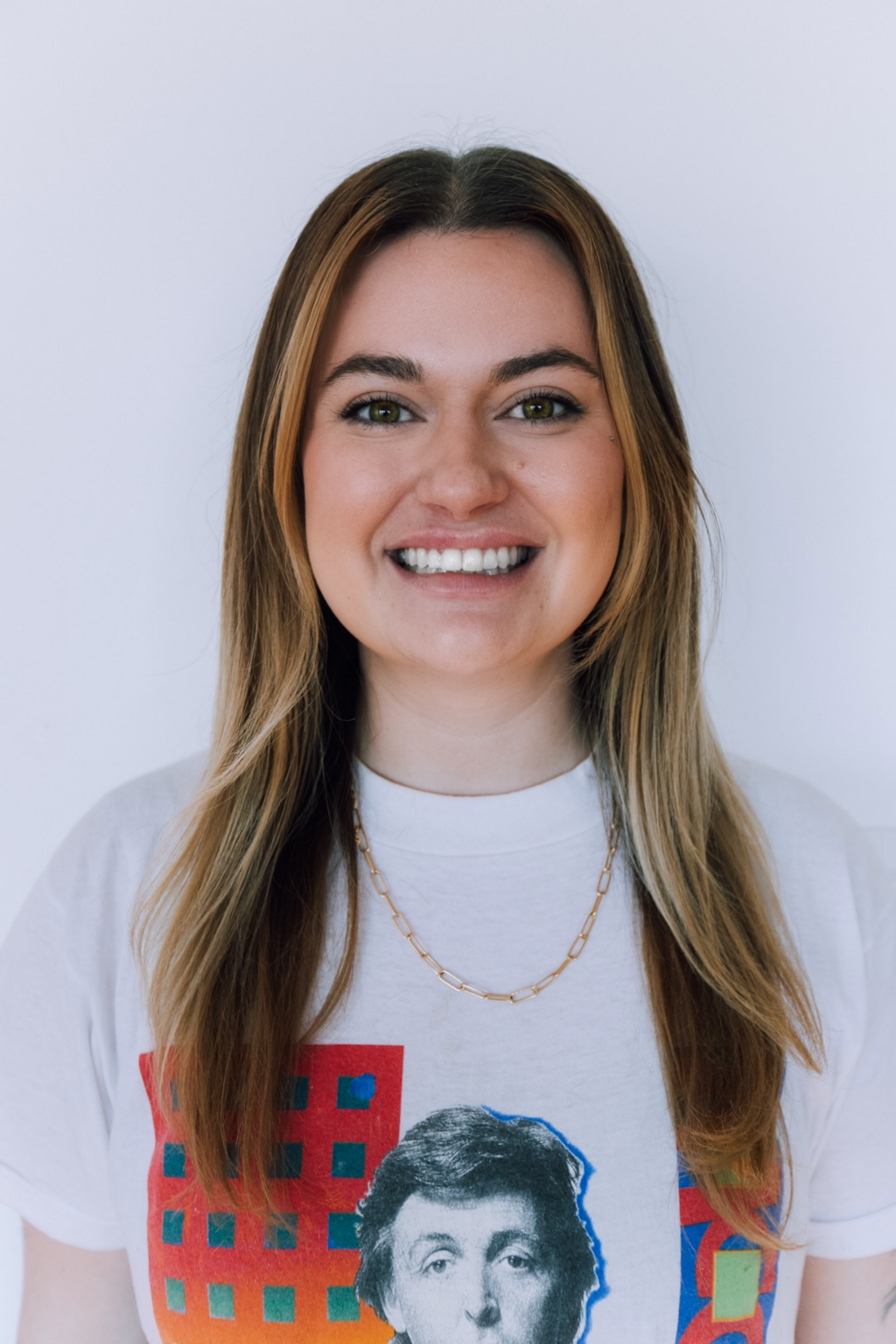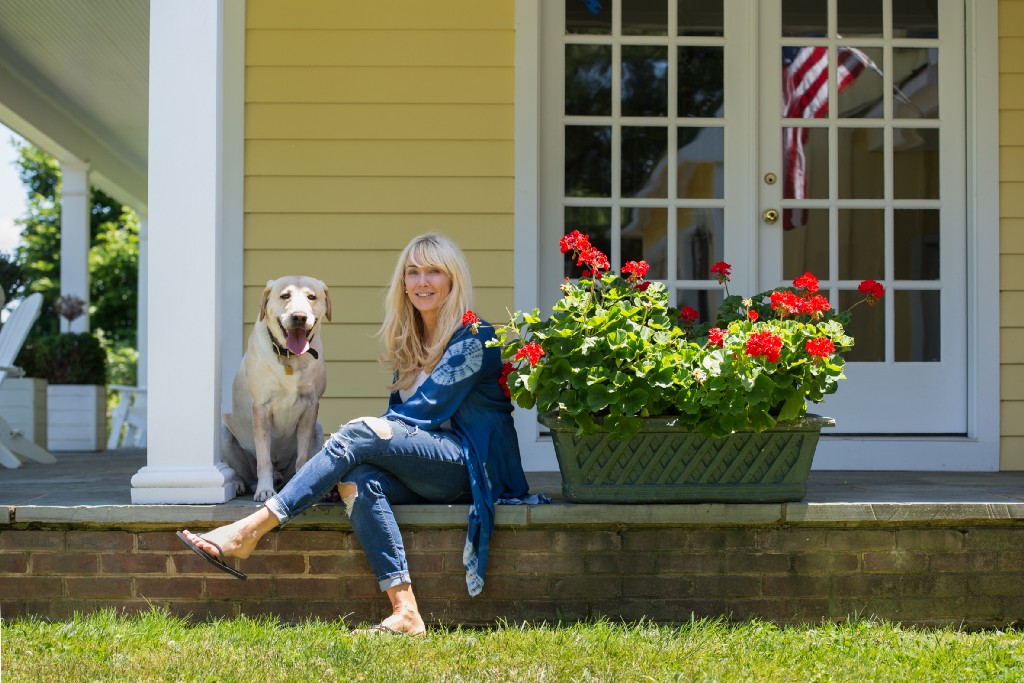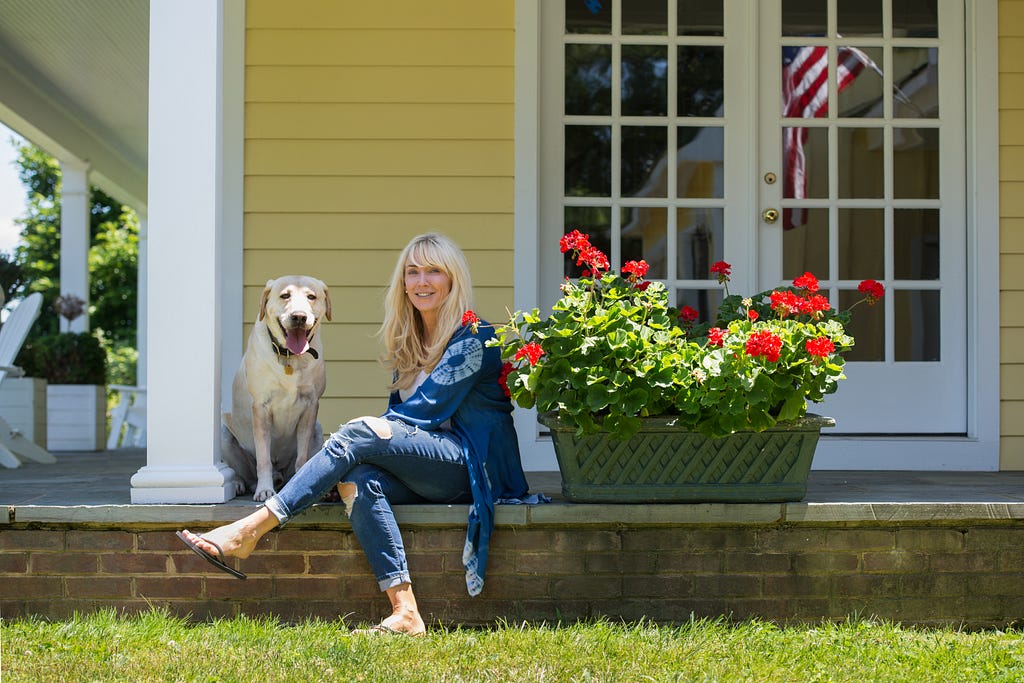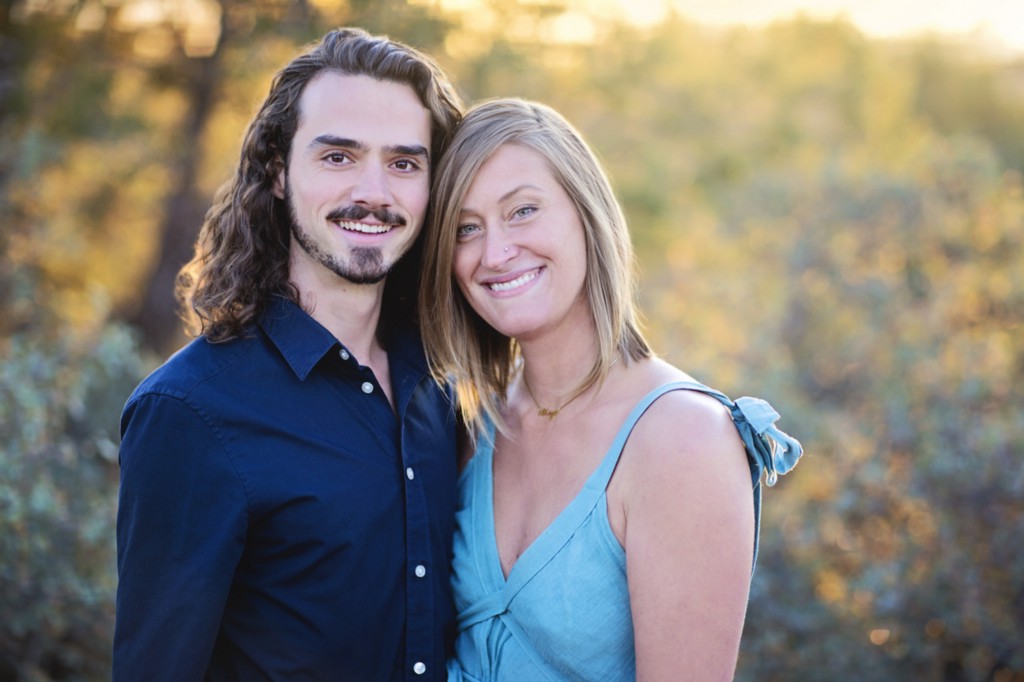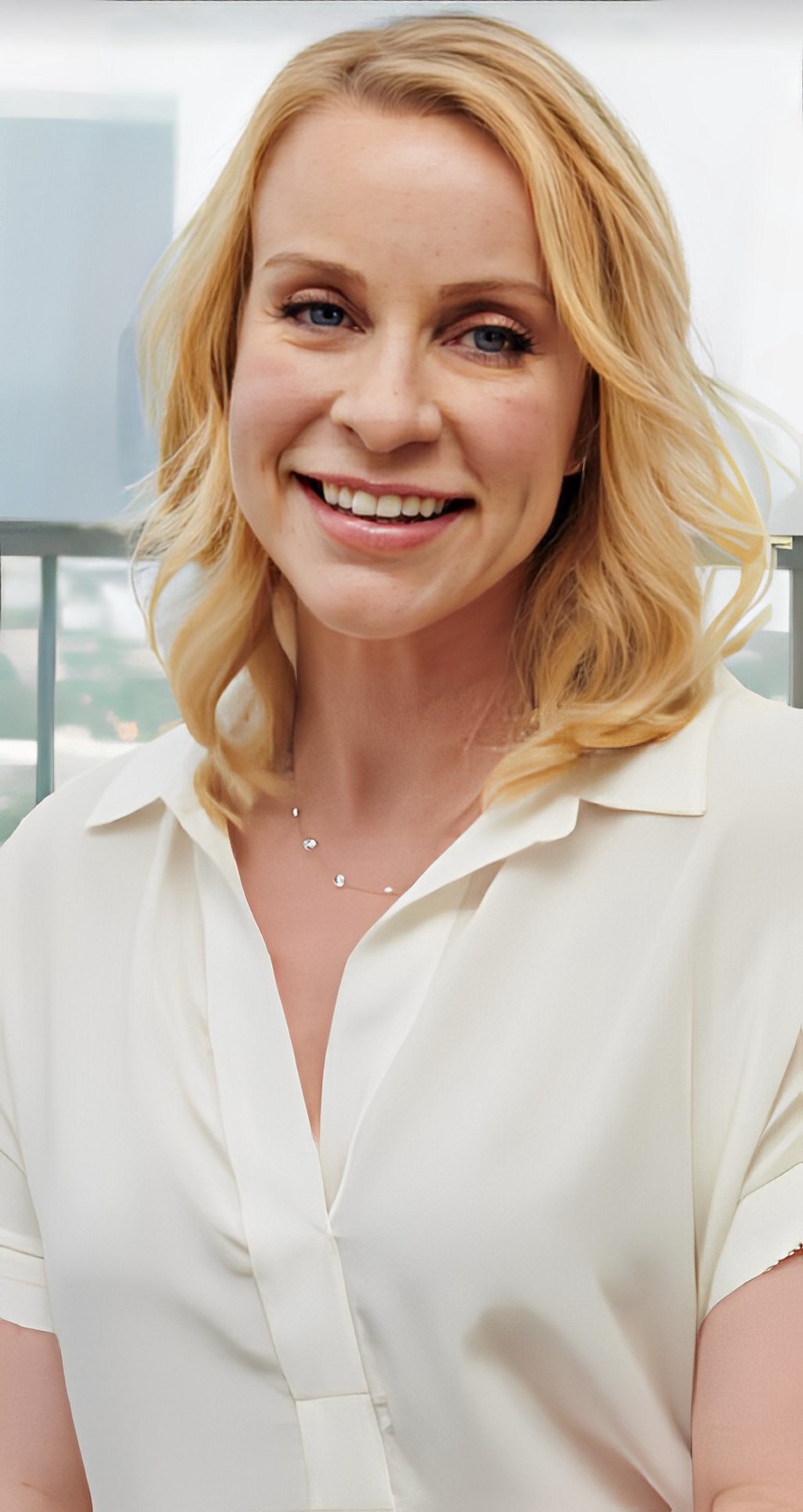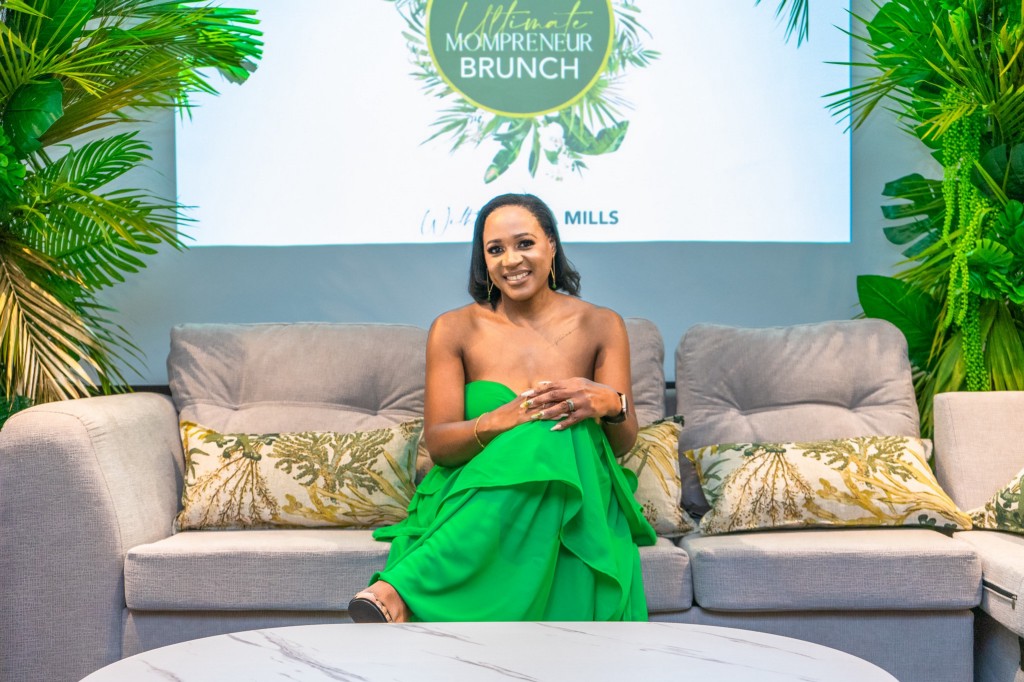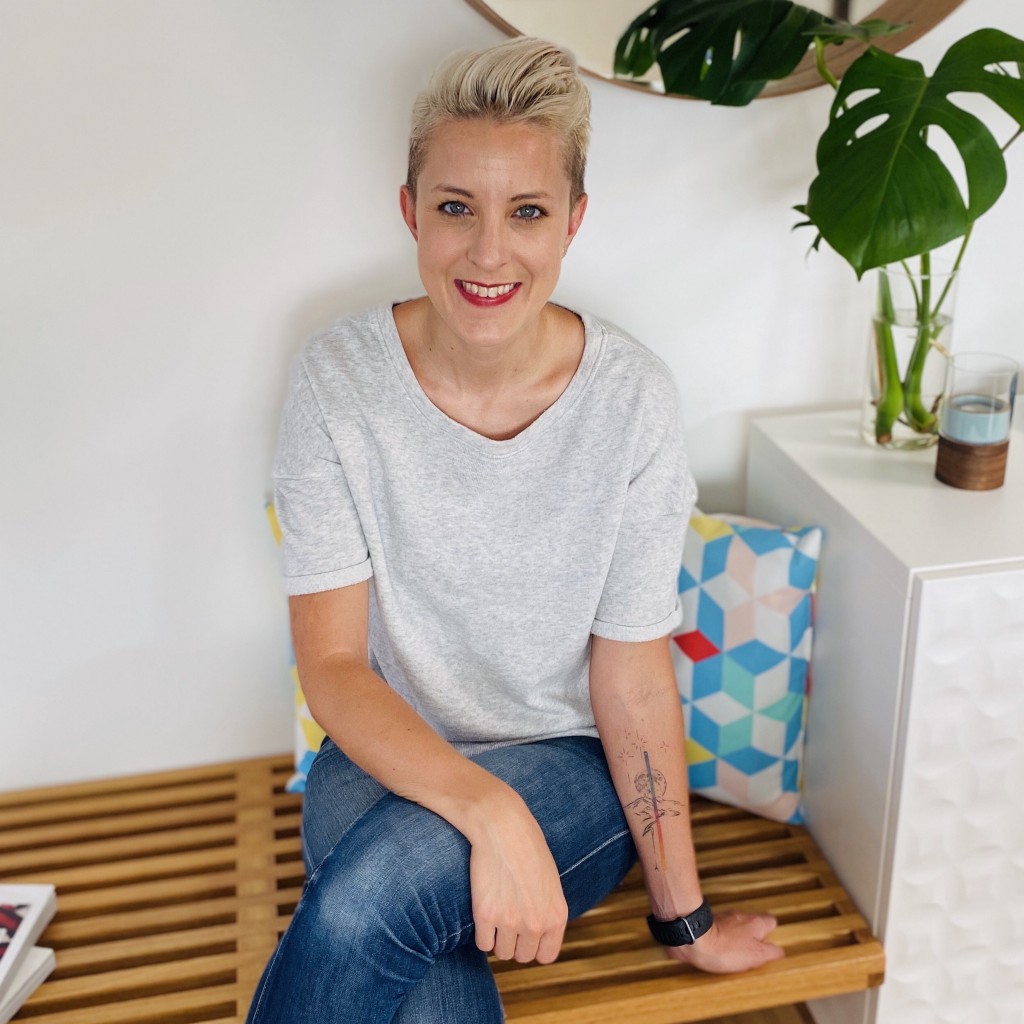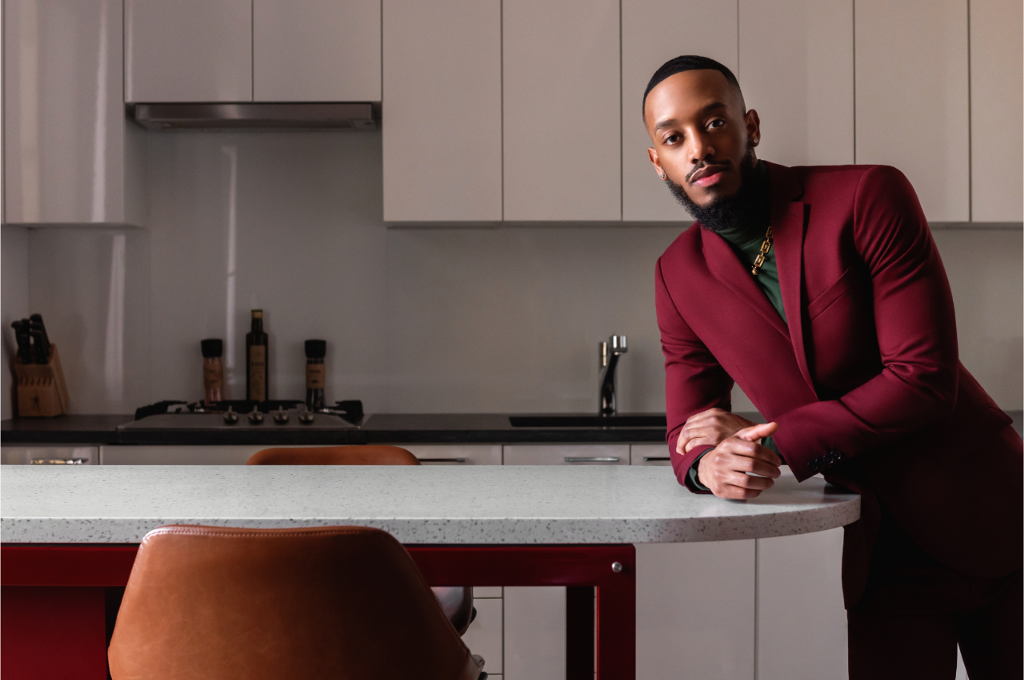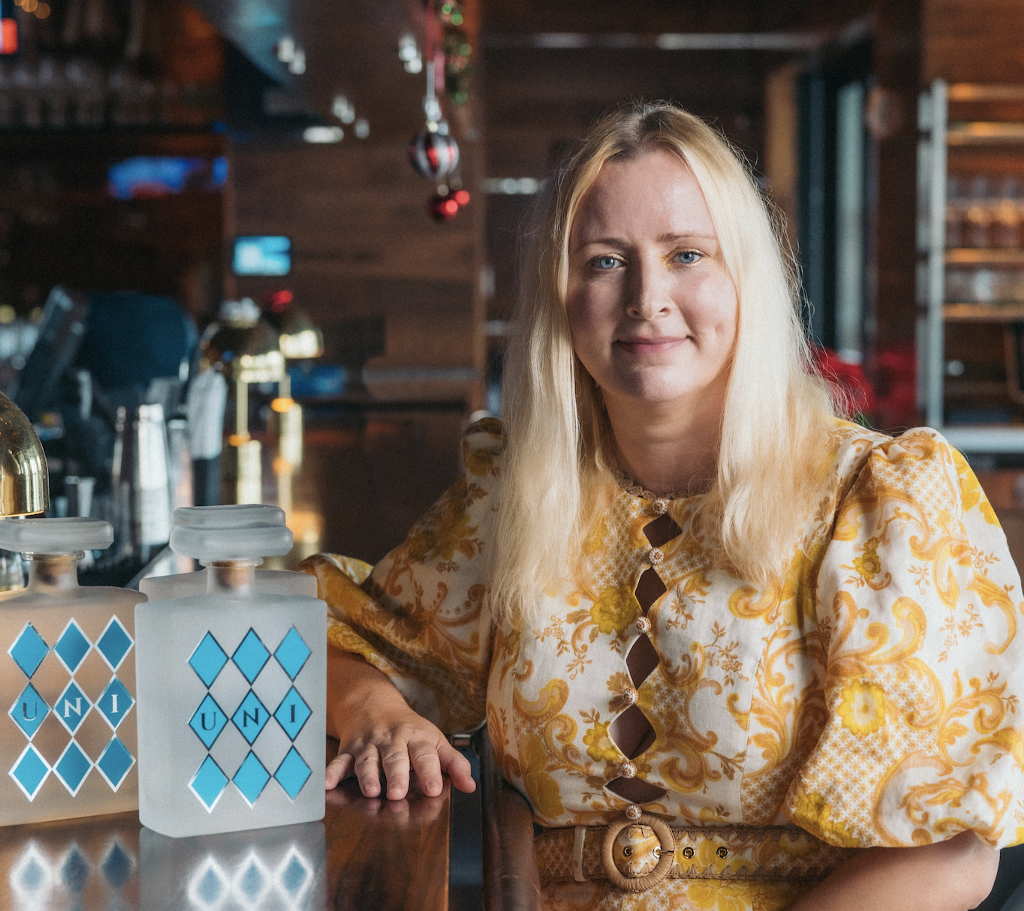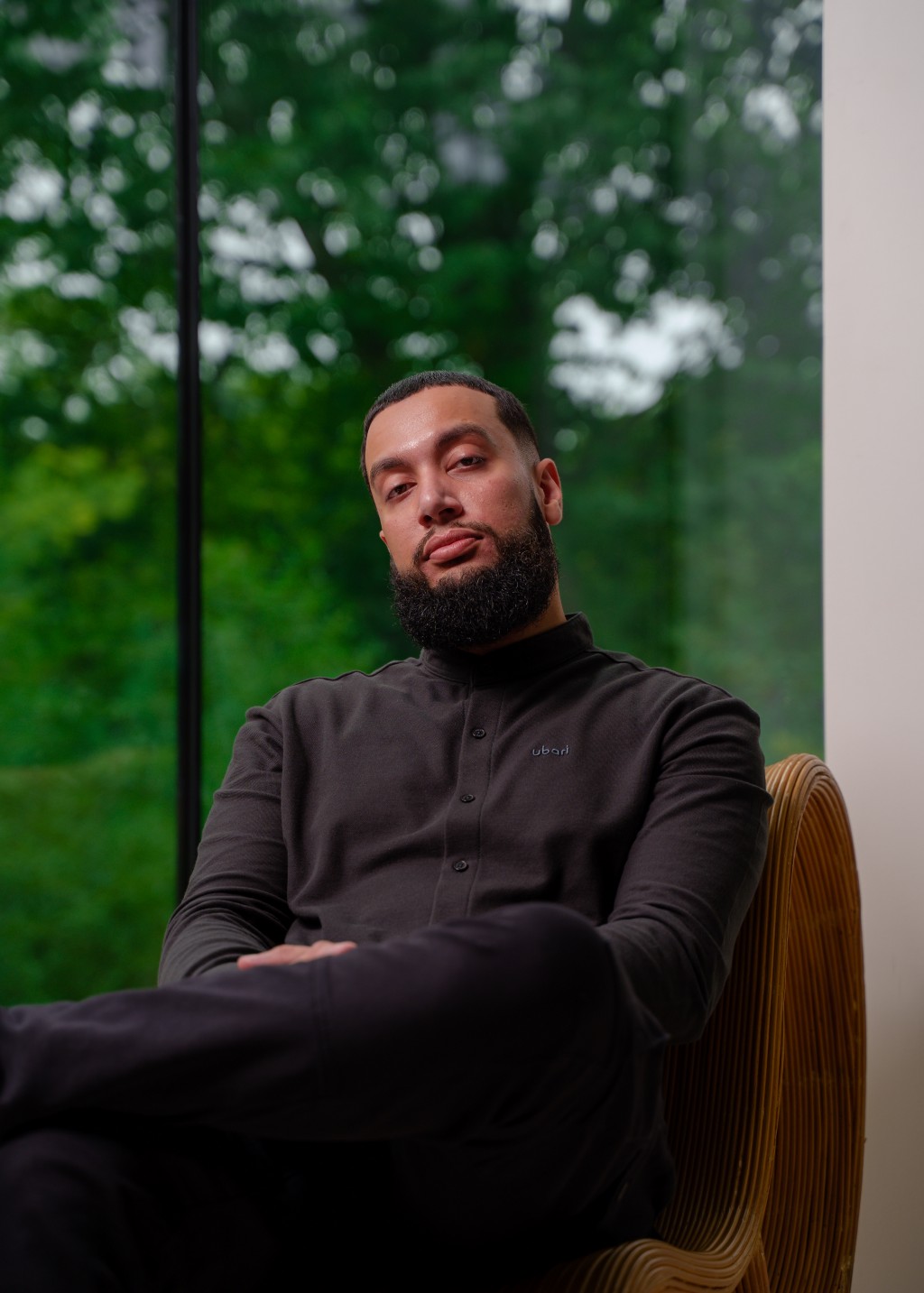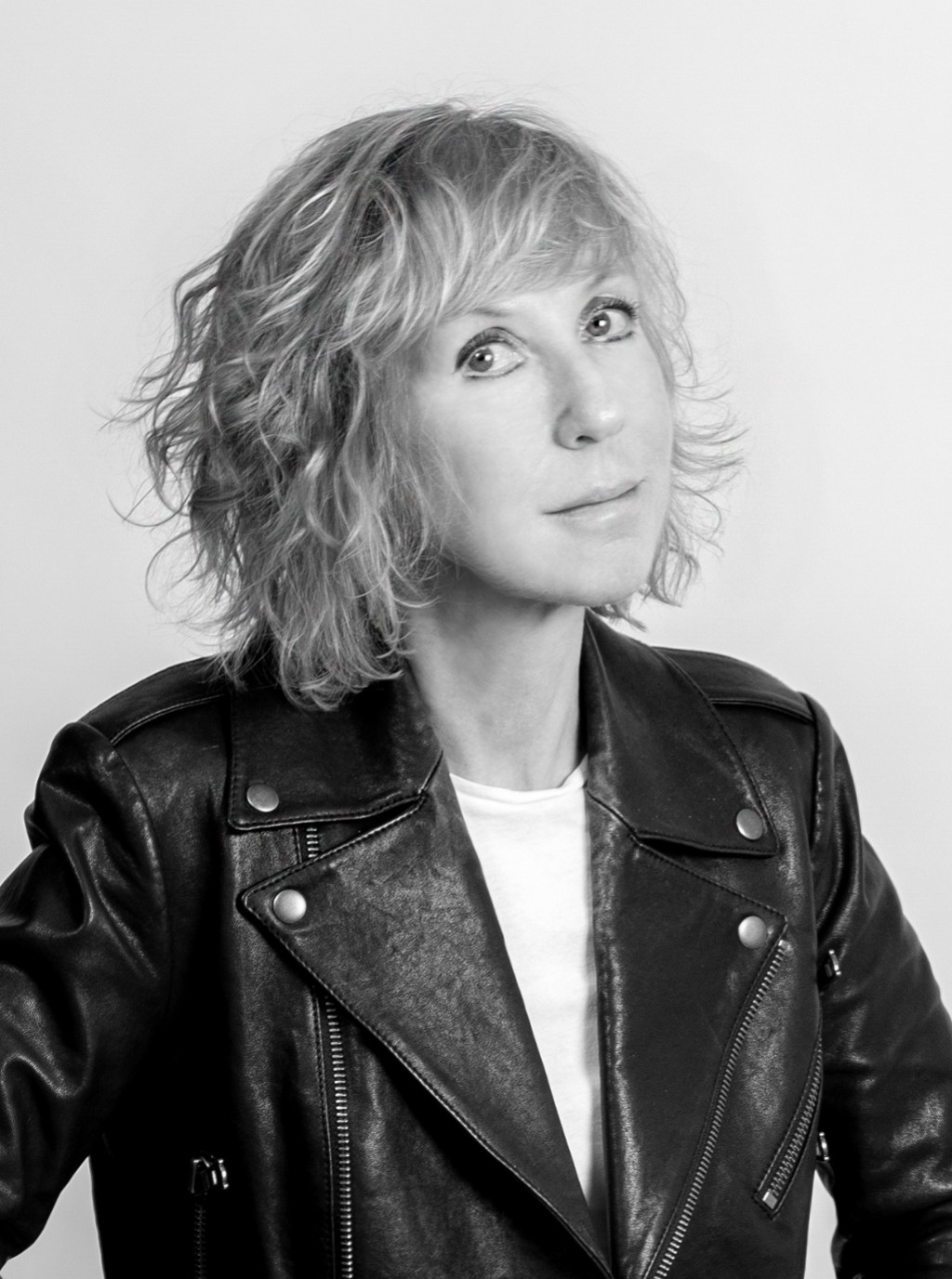Female Founders: Jess Flack of Ubiquitous On The Five Things You Need To Thrive and Succeed as a Woman Founder
An Interview With Candice Georgiadis

Being a founder and CEO can be lonely. Being in the CEO role means you’re constantly fielding information, much of which may be sensitive. It can be tough when you’re the boss and there’s not really anyone you can talk to about the challenges you’re facing.
As a part of our series about “Why We Need More Women Founders”, I had the pleasure of interviewing Jess Flack.
Jess Flack is the CEO and Co-Founder of Ubiquitous, an influencer marketing company focused on connecting social media advertisers and creators to develop mutually beneficial marketing campaigns.
Thank you so much for doing this with us! Before we dig in, our readers would like to get to know you a bit more. Can you tell us a bit about your “backstory”? What led you to this particular career path?
I studied digital media with an emphasis in cinema, but I really didn’t know where I wanted to take that. More than anything, I enjoyed the curriculum in the arts. But through my undergrad studies, I had to have an internship and wound up working at a marketing agency. Through that experience, I realized marketing involved both the creative side of my brain and also the analytical side — I’ve always loved math and numbers and making things make sense. That internship experience really set me on the course to my current role.
After a couple of agency stints, I wound up at Bellhop on the brand side. That’s where I realized I love startups. My time there made me a more well-rounded performance marketer, and I got familiar with the startup lingo and other concepts specific to that world. During my time at Bellhop, the pandemic started and the world shut down. I found myself with a lot of extra time on my hands and picked up some contract work — one of those jobs was to build a marketing strategy for a record label around the time that TikTok was really taking off. Although I had run influencer campaigns at Bellhop, it was always through an agency. I’d never run something like that myself. After reaching out to 200 or so creators and doing a lot of trial and error, I realized (without getting too deep in the weeds here) that TikTok was an insanely affordable and effective marketing platform.
After seeing the possibilities and successes of this campaign, I knew there was so much more we could do, so I pulled in more friends as contractors, formed a team, and we did that for around a year. In April of 2021, Ubiquitous was officially formed. We had a team of 10 up until November of 2021 when we raised our seed round of $5 million with a $28 million valuation. Since then, I have taken on the role of CEO, and we’ve grown to a team of about 40.
Can you share the most interesting story that happened to you since you began leading your company?
Becoming CEO of a venture-backed company before the age of 30!
Can you share a story about the funniest mistake you made when you were first starting? Can you tell us what lesson you learned from that?
In the very beginning, we tried to put together a creator house — essentially a location where creators could go and develop the content they need to satisfy agreements with their advertiser partners. Suffice it to say that it didn’t work out. It wasn’t “funny,” but it was a learning moment for sure. In the startup world, it’s all about iterating, moving fast, trying things really quickly… But in this situation, I realized that sometimes you have to slow down, especially when there are people involved. We had developed real relationships with these creators, and I felt so personally invested in this working out for them.
None of us are able to achieve success without some help along the way. Is there a particular person who you are grateful towards who helped get you to where you are? Can you share a story about that?
I can’t name just one! But here are the three that come to mind:
1. Anna Siler. Anna and I have essentially had parallel careers. We started our careers together at an agency, then we both went to work at separate startups. And now, we’ve been able to come together again at Ubiquitous. Having that rapport and work chemistry with someone — yes, we’re friends, but we became friends through work — means we’re able to collaborate in really impactful ways. She’s also just someone that I can rely on and trust deeply. I’m really grateful for her role in my life and my career.
2. Natalie Martin. Natalie worked with me at the marketing agency where I started out, and she was further along in her career than the rest of our team at that time. She brought context about work and life that I didn’t have yet and set me on a path where I started to realize the value I bring and helped me figure out how to hold myself to a higher standard. She showed me that I could set goals and do bigger things and that I didn’t need to settle for what was right in front of me.
3. Bill Chase. Bill is the CMO at Bellhop, my last boss before co-founding Ubiquitous, and in some ways, I had the least amount of time with him of anyone on this list. But I am constantly referencing Bill, replicating elements of his management style. He was always so willing to be in the trenches with his team without promoting an unhealthy work/life balance or grind culture. It inspired me to work harder. If I didn’t do something, Bill was going to do it — without complaint — but I didn’t want him to have to. I wanted to work hard because I saw how hard he was working. I wanted to support him. Today, I always have a campaign I’m running, I help people build spreadsheets… I never want to be out of touch.
Ok, thank you for that. Let’s now jump to the primary focus of our interview. According to this EY report, only about 20 percent of funded companies have women founders. This reflects great historical progress, but it also shows that more work still has to be done to empower women to create companies. In your opinion and experience what is currently holding back women from founding companies?
Although this is a human condition, women can be more prone to imposter syndrome. It’s something I struggle with at times. Culturally, there’s still a stigma that if a woman comes on too strong, she’s aggressive — if you’re too sweet, you’re soft. Knowing these stereotypes are out there can really contribute to imposter syndrome and make women unsure of how to act.
Can you help articulate a few things that can be done as individuals, as a society, or by the government, to help overcome those obstacles?
Even though I sometimes deal with imposter syndrome myself, I know it’s up to me to help combat it. There have been people along the way in my career who have reassured me that I am up to the challenge, that I’m smart enough, tough enough… I think as leaders, we have to make sure we’re supporting all people, all voices.
It’s also our individual responsibility to put ourselves out there and surround ourselves with people who build us up, rather than tear us down. It’s not easy, but it’s so important to play an active role in your own story.
So I guess my answer is two-fold: We have a responsibility to believe in ourselves, even if we don’t see anyone representing us. To know we have the potential to break the mold. And we also have a responsibility as leaders and peers to reinforce and build the confidence of those around us. We have to see the potential in others and work to support and grow it.
This might be intuitive to you as a woman founder but I think it will be helpful to spell this out. Can you share a few reasons why more women should become founders?
I think women, generally speaking, are more likely to approach business from a position of empathy. Empathy is such a superpower when it comes to being a manager or leader. It may sometimes feel like a weakness, but from my perspective, the relationships you make matter more than almost anything. If you’re able to create really healthy, close relationships, they will carry you wherever you need to go. I think this is something women leaders are particularly adept at, and these qualities make great founders.
What are the “myths” that you would like to dispel about being a founder? Can you explain what you mean?
You don’t have to have all the answers — you just have to have the right people. People make the company, not the founder.
Also, I’d say failure in general is a myth. Everything is a learning opportunity — in marketing, you’re always testing and learning, and when you get too caught up in what you perceive as a failure, you just set yourself back.
Is everyone cut out to be a founder? In your opinion, which specific traits increase the likelihood that a person will be a successful founder and what type of person should perhaps seek a “regular job” as an employee? Can you explain what you mean?
No — being a founder is not for everybody. You have to be passionate about the vision, and you have to stay hyper-focused on it. Although my day-to-day varies, the focus on the vision remains. So if you’re easily distracted or need constant change and new projects to work on, being a founder may not be for you.
You also have to understand your personal hierarchy of needs — if work/life balance and having more structure in your day are most important, being a founder is not the right role for you. It’s an “always-on” job. It’s all-consuming — and it’s worth it — but people that aren’t extremely passionate about the vision and aren’t willing to compromise on other elements of their lifestyle may find themselves really unhappy or unfulfilled.
It’s also important to note that both roles are necessary and incredibly valuable. Not everyone has to be a founder to be a key contributor!
Ok super. Here is the main question of our interview. What are your “5 Things I Wish Someone Told Me Before I Started” and why? (Please share a story or example for each.)
1. Being a founder and CEO can be lonely. Being in the CEO role means you’re constantly fielding information, much of which may be sensitive. It can be tough when you’re the boss and there’s not really anyone you can talk to about the challenges you’re facing.
2. Knowledge is power, but knowledge can also be a burden. Similar to the above, the emotional impact of hard decisions that are looming can feel like a weight or burden to carry. It’s not always fun.
3. Board relationships don’t have to be scary or rigid. It’s really important to have a diverse board where you rely on different people for different things — but I’d recommend having at least one person on your board who you’re really comfortable with. That outlet is truly invaluable (and helps tremendously with numbers 1 and 2 above).
4. It’s okay (and can even be a good thing) to admit when you don’t have the answer. It’s much worse to posture that you have it all under control if you don’t. Be open to (and encourage) a culture of constant ideation where people feel comfortable collaborating. You can earn a lot of respect from your team if you say, “I’m not sure about that. Let’s look into it and figure it out together.”
5. Focus your energy on the things you can control. It’s easy to get wrapped up in “what ifs,” but then you end up operating from a position of fear. I’m constantly having to step back, breathe, and get control over my anxiety when it feels like challenges are looming. You can’t predict the future, so there’s no point in worrying about it. Only focus on the things you can do today to move the needle; focus on healthy behaviors vs. doomsday planning.
How have you used your success to make the world a better place?
I am thrilled to be in a position to make Ubiquitous a great place to work. Over the course of my career, I’ve seen things done poorly, I’ve seen things done well… And now I have the chance to take those experiences and use them for the good of our team members and our customers.
Ubiquitous offers great benefits, bonuses, the opportunity to travel… Our team members genuinely enjoy working with each other. We’re committed to listening to our employees so that we know what they need to be happy and healthy in our workplace culture. That happiness translates to better experiences for creators and customers, and it’s something I’m really excited about.
You are a person of great influence. If you could inspire a movement that would bring the most amount of good for the greatest number of people, what would that be? You never know what your idea can trigger.
In general, I’m really passionate about equal opportunities for people in different life stages. I’m not sure of a particular movement, but I’d love to be involved in something that empowers communities and individuals to understand each other better and support each other. Different voices and cultures and perspectives are critical elements of our humanity, and they should be celebrated through shared understanding.
We are very blessed that some very prominent names in Business, VC funding, Sports, and Entertainment read this column. Is there a person in the world, or in the US with whom you would love to have a private breakfast or lunch with, and why? He or she might just see this if we tag them.
Stevie Nicks and/or Dolly Parton!
For Stevie: I grew up on Fleetwood Mac, and Stevie was what made me really fall in love with music, the person who led me to start writing songs and learning to play instruments. She’s always been my musical inspiration.
And of course, I love Dolly’s music as well. I was raised on Steel Magnolias and could probably quote it from beginning to end. Dolly radiates grace and humor in everything that she does, and somehow, she is able to bridge so many gaps without sacrificing her personal integrity. Everybody knows where she stands, but she’s still loved by everyone. I also love how feminine she is. She’s never toned down her femininity to appease people or to have them perceive her as strong or capable.
Thank you for these fantastic insights. We greatly appreciate the time you spent on this.
Female Founders: Jess Flack of Ubiquitous On The Five Things You Need To Thrive and Succeed as a… was originally published in Authority Magazine on Medium, where people are continuing the conversation by highlighting and responding to this story.

